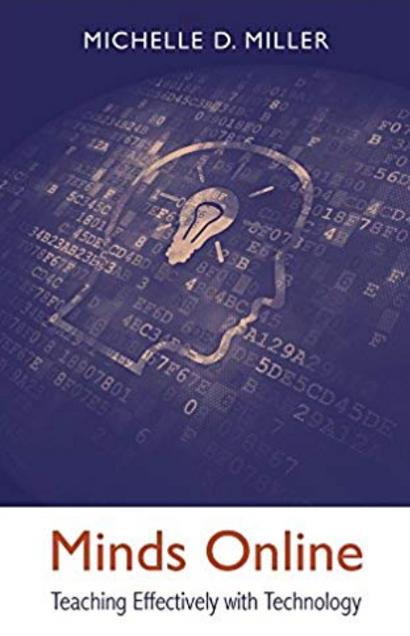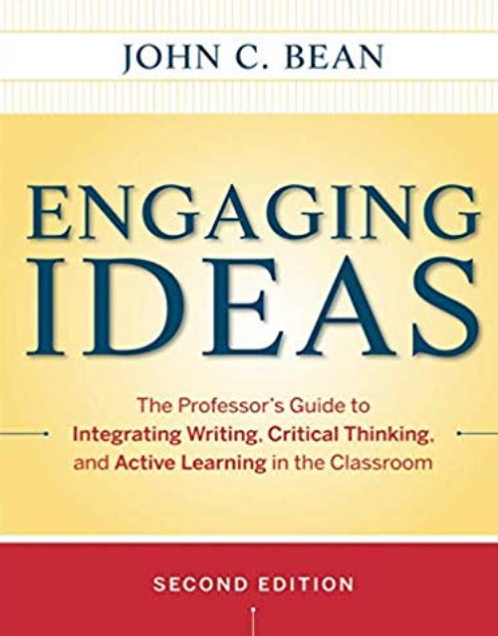CTL Reading List 2020

With the Spring 2020 semester coming to a close, the Summer months offer an opportunity to step back from the busy day-to-day activities and seek out some fresh ideas to reinvigorate your teaching. Check out The Center for Teaching & Learning’s (CTL) most inspiring reads. If interested in exploring any of the recommended approaches, Boston University’s CTL is available twelve months a year for support.
Mindfulness in the Academy

Mindfulness in the Academy focused on the way academics understand, embrace and enact the concepts of mindfulness in approaching their work in demanding and dynamic contemporary higher education environments. It examines how they implement formal and informal mindfulness practices that increase the capacity to transform mind and body states by drawing on concepts such as compassion, kindness, gratitude, curiosity, self-awareness and non-judgemental stances. Insights are provided into and highlight the struggles of scholars through their experiences and perspectives in relation to their identities, practices and job enactment. Each chapter author explains their mindfulness practices and their motivations for implementing them, and explores how mindful ways of researching, writing, learning and teaching, leading, and engaging with others leads us to self-awareness and engagement in the present.
McKeachie’s Teaching Tips : Strategies, Research, and Theory for College and University Teachers

This classic book, authored by Marilla Svinicki and Wilbert J. McKeachie, provides hands-on teaching tips to instructors. It’s the Reader’s Digest version of university teaching. The book outlines practical tips for planning a class, managing a classroom, active learning strategies, facilitating discussion, and assessing student learning. It also provides tips for written feedback, teaching diverse students, and so much more. It’s a handy guide and a must-have for all professors.
Minds Online: Teaching Effectively with Technology

Minds Online, authored by Michelle Miller, provides an evidence-based approach to teaching with technology. From blended or flipped courses to fully online classes, Michelle Miller provides contexts and examples of appropriate technology use (e.g., visual aids) to deliver quality educational materials and learning experiences. Additionally, Miller incorporates the latest neuroscience research to specifically illustrate how learning activities translate to the online context so that students stay motivated in their online classes. Any faculty member teaching an online course at Boston University should find these tips and perspectives helpful.
Small Teaching: Everyday Lessons from the Science of Learning
James Lang’s book bridges research and practice by introducing evidence-based “small teaching” techniques that educators in all disciplines can use to enhance student learning. Requiring minimal preparation or grading, Lang’s suggested strategies are designed to promote active learning in your classroom. Try one or two, and we think you’ll come back to Small Teaching for more.
How Learning Works: 7 Research-Based Principles for Smart Teaching
How Learning Works, authored by Susan Ambrose, distills core principles in cognitive and educational psychology into bite-sized teaching tips. This seminal book provides concrete case studies and examples to illustrate key learning sciences research on how students organize knowledge, achieve mastery, and become self-directed learners. It emphasizes the pedagogical utility of fostering a welcoming classroom climate and providing practice and feedback. Together, the expert framing of research and application into distinct topical chapters invites instructors from all disciplines to reflect on ways to improve their craft—as well as to recognize research-based principles they already employ. A must-read for any teacher!
Engaging Ideas: The Professor’s Guide to Integrating Writing, Critical Thinking, and Active Learning in the Classroom.
John Bean’s eminently practical book offers approaches that work across the disciplines to help students engage course content deeply, using writing not as an end in itself but as a way to enhance critical thinking. It provides useful strategies for infusing active learning throughout a class, crafting meaningful problem-based assignments, and offering more useful feedback more efficiently. Bean’s advice is grounded in research and written with the “busy professor” in mind.
Learn more about Digital Learning & Innovation, or to schedule an appointment with a Learning Experience Designer, email CTL@bu.edu.





